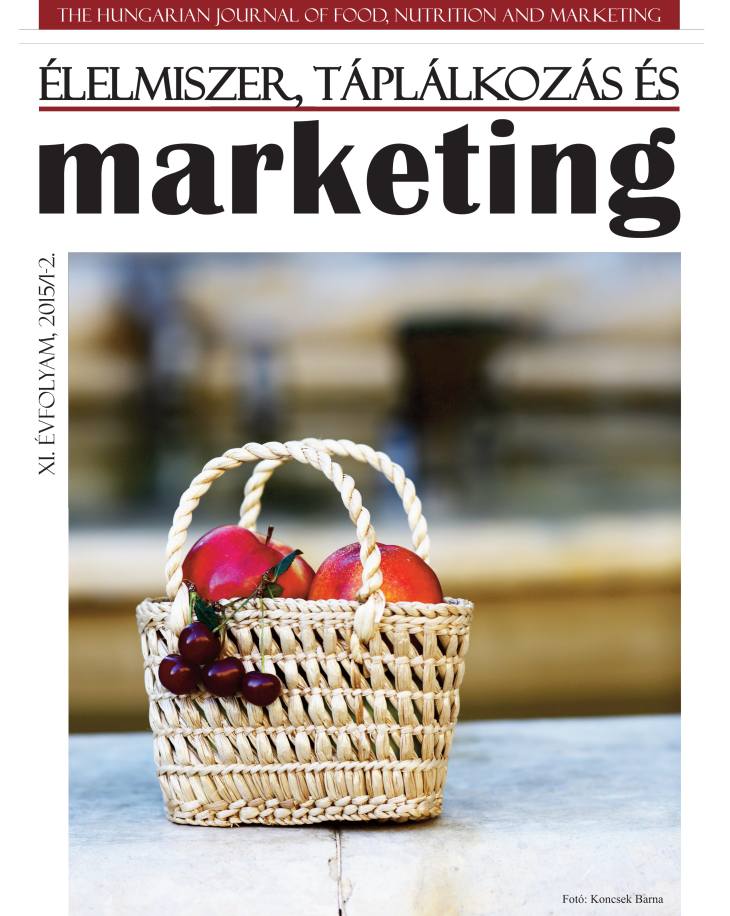Quality in school catering service
Abstract
The key role of school catering service is to provide children with safe, healthy and good quality food in the daytime, during their stay at educational institutions (kindergartens, primary and secondary schools). As children spend most of their time in these institutions, the school catering services and programmes have become in the focus of public attention all over the world. The importance of this task lies in that healthy childhood nutrition and diet will basically determine the health state of present children in their adult ages, thus it can be stated that it will influence the future economic and social performance of the society. School catering plays also an important role in the shaping of taste and eating habits of children, which – of course – should be a family task, but in our days it works differently. In our accelerated world the eating culture of children is at a very low level; their dietary habits are deformed and deficient. The former family patterns have changed and the children cannot see the good practice of eating at home, they do not have an appropriate model of eating habits and food culture. The daytime meals are provided by different channels of catering and food delivery services, fast food restaurants, buffets or home-made cold meals and sandwiches. For children the best solution should be school catering, as through this channel they could get food in an organized form with a controlled quality at the right place in the educational institutions. However, the present experience of school catering shows a lot of problems and the acceptance and popularity of school catering is not appropriate in many cases, which, however, might be improved by higher quality. The parameters of quality, which are connected to the main expectations of the consumers, may be classified into four categories. The first category is the safety of the served food i.e. its consumption will not cause any food safety hazards for the consumers. The second category is nutritional value, which refers to the healthy and nutritious content of the food. The third category represents getting enjoyable food for the different meals, which means that the appearance and taste of the meals should be appropriate and enjoyable for the consumers. The fourth category is connected to the appropriate conditions of catering, i.e. the physical facilities, the atmosphere and circumstances of consumption. The latter two categories might be perceived directly even by the youngest consumers, so in school catering the enjoyability of the meals and the conditions of consumption will play a particularly important role. By improving the parameters discussed in our paper, the quality of school catering services might be improved significantly, and school kitchens could be an excellent opportunity for children to get the right food at the right place, together with their classmates. In this case parents can be sure that their children are safe, and having the appropriate catering during school time. The experiences and results of our previous and presently conducted researches indicate that by appropriate management, organization, knowledge transfer and attitudes the problems might be solved, and the questions of the quality of school catering could be developed and improved efficiently.



